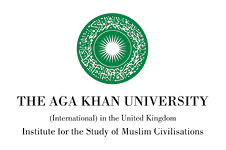Mathew Barber
Biography
Mathew Barber is a historian and digital humanist specialising in Egyptian historiography and in particular Fatimid history writing (c. tenth–twelfth centuries). He obtained a BA in history from the University of Oxford (2010–2013) before going on to study for an MSc in Arabic at the University of Edinburgh. He received his doctorate in 2021 from the University of Edinburgh with a thesis entitled ‘Fatimid Historiography and Its Survival: A Case Study of the Vizierate of al-Yāzūrī (r. 442–450/1050–1058)’.
He is a member of AKU-ISMC’s Centre of Digital Humanities (CDH), where works with the team on the development of digital methods for the study of Arabic texts, including Machine Learning approaches. His research involves close cooperation with computer scientists and he is passionate about the benefits of collaborative research in the Digital Humanities. His current research investigates lost texts and their survival (with a focus on lost Fatimid historiography), developing new digital methodologies for the identification and study of lost texts. In his role at the CDH, he facilitates the development of applications for digital humanists, and he is currently participating in ongoing the team effort to develop eScriptorium (an application OCR and post-correction). He is passionate about the role the Digital Humanities will play in changing the way in which scholars, students and the public engage with historical texts and the past. His teaching encompasses pre-modern Islamic history and historiography, global history and the Digital Humanities.
Research interests
Fatimid history writing and the lost historiography of the Fatimids
Lost texts and digital approaches to the study of them
Digital Humanities and the development of digital methods for philological applications
AI and Machine Learning and bias in AI models (particularly Large Language Models)
Optical Character Recognition (OCR) and Handwritten Text Recognition (HTR)
Selected publications
(2024). Comparing the crisis of 806/1403–4 and the Fatimid fitna (450–466/1058–1073): al-Maqrīzī as a historian of the Fatimids. Annales Islamologiques, 58, 31–64.
(2019). Reappraising the Arabic accounts for the conflict of 446/1054–5: An Egyptian perspective on Constantine IX and his immediate successors. In M. Ivanova & H. Jeffery (Eds.), Transmitting and circulating the Late Antique and Byzantine worlds (pp. 170–198). Brill.
Personal links
https://aku.academia.edu/MathewBarber
Contact
mathew.barber@aku.edu


